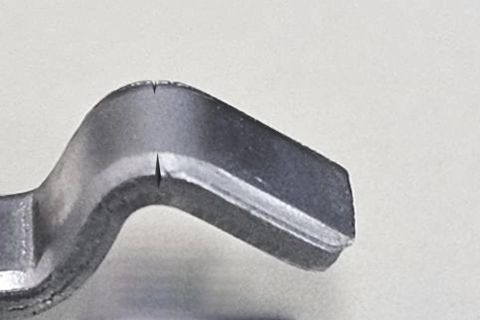In accordance with the EU's implementation of the Personal Data Protection Act, we are committed to safeguarding your personal information and providing you control over it. We have updated and will regularly update our Privacy Policy to comply with this personal data protection law. Please refer to our latest Privacy Statement.
This website uses cookies to enhance your browsing experience. To learn more about how this website uses cookies, please click here.
Latest News
30.Sep.2025
Case Studies
How Steel Materials Improve Bending Performance
Customer Challenge
A client used their in-house SK85M raw steel (1.0 mm thickness) for processing and found that, although the Vickers hardness differed by less than 5 points compared to Hung Shuh’s Nippon Steel materials, there was a noticeable difference in bending performance.
Hung Shuh’s Professional
Insight Hardness alone is not enough to evaluate material performance. Other mechanical properties—such as yield strength, tensile strength, elongation, and toughness directly affect forming, yield, and the feasibility of mass production. If the material properties do not match the processing equipment, it can lead to higher production costs, lower yield, or even make mass production impossible.
To address this, Hung Shuh follows a step-by-step process: material selection → trial processing → small batch production → full-scale production, closely collaborating with the client at each stage to verify the material’s optimal mechanical performance.
Results and ValueBy using carefully selected Nippon Steel materials, the client achieved smoother bending, improved yield, and stable mass production. This case clearly demonstrates the superior mechanical performance of Nippon Steel materials combined with Hung Shuh’s professional support, resulting in higher product quality and production efficiency.
Other
05
Aug.2025
Case Studies
SK5 Cracking Case Solved with SK85M Material from Nippon Steel
07
Jan.2026
Case Studies
Cut Cleaner, Cut Smarter — Reduce Dust with HUNG SHUH Precision Rules
28
Jul.2025
Case Studies



